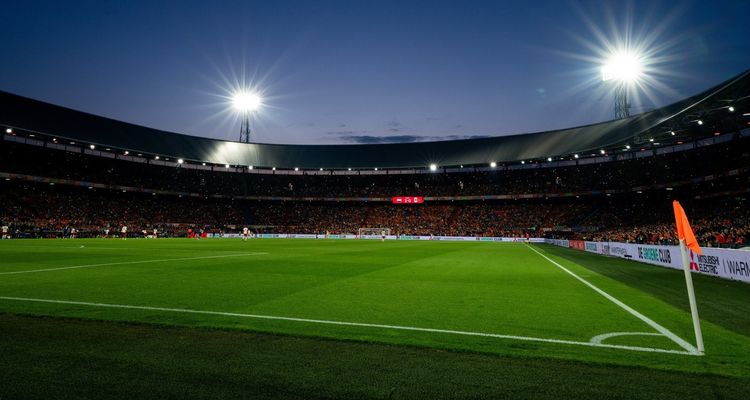Stadion Feijenoord, Feyenoord seek to secure De Kuip's future

Stadion Feijenoord, the entity which owns and manages De Kuip, is set to be brought into the organisation of the stadium’s main tenant, Dutch Eredivisie football club Feyenoord, amid a need to conduct redevelopment work at the facility.
The two parties have signed a letter of intent on a possible merger, it was announced at Stadion Feijenoord’s annual general meeting. Stadion Feijenoord shareholders were told such a move is a necessity, with the organisation stating it cannot maintain De Kuip at an adequate standard purely through its own financial resources.
In order to continue using De Kuip for the next 15 years, large-scale maintenance work and improvements are required. This mainly involves conducting overdue maintenance that had been put on the back burner amid Feyenoord’s proposed new stadium in Rotterdam.
Significant adjustments are also required to continue to meet the requirements, including those in the area of safety, of UEFA, in order to continue playing European football in De Kuip. Furthermore, major investment must be made in improvements to the catering facilities, in order to ensure De Kuip keeps up with modern day fan experience expectations.
The total cost of such work is estimated at between €30m (£24.7m/$31.5m) and €50m. A joint statement read: “The unification that the boards of commissioners and management of the club and stadium have in mind concerns an integration of Stadion Feijenoord within the Feyenoord organisation.
“This can guarantee continuity, create a strong basis for both the stakeholders of Stadion Feijenoord and Feyenoord, and will result in synergy benefits.
“To make the unification possible, the approval of a qualified majority of the shareholders of Stadion Feijenoord is needed. At the moment, a proposal to the shareholders is being worked on hard, which should be ready before the end of the current football season.”
The latest news comes after Stadion Feijenoord in September announced it had paid off a loan from Goldman Sachs that was taken out in association with the failed attempt to deliver a new stadium for Feyenoord.
The loan from the US investment banking company was initially taken out to help finance the start-up phase of Feyenoord City, a major project that intended to redevelop the area around De Kuip with housing, while building a new 63,000-seat stadium on the banks of the River Maas.
The project was given the green light in 2017 only for Feyenoord to officially drop the plans in April 2022. Stadion Feijenoord had since been hamstrung by the debt and accumulating interest from the Goldman loan, but director Lilian de Leeuw said that the debt of over €15m was paid off during the summer.
Pieter van Oord, chairman of the supervisory board of Stadion Feijenoord, said that with Feyenoord seeking to play at De Kuip for at least the next 15 years, unification between the club and management body is the only means to deliver the necessary upgrades.
“We play in a beautiful stadium, but also in a monument,” Van Oord said, according to Algemeen Dagblad. “And that has consequences.”
While the Feyenoord City plan fell through, Van Oord said there has to be an awareness that De Kuip is approaching the end of its natural life. He added: “We also have to think about the long term. We really won’t be playing in this stadium in 50 years. We can’t sail to New York with the SS Rotterdam either. Technically it would be possible, but you’ll go bankrupt.”









































